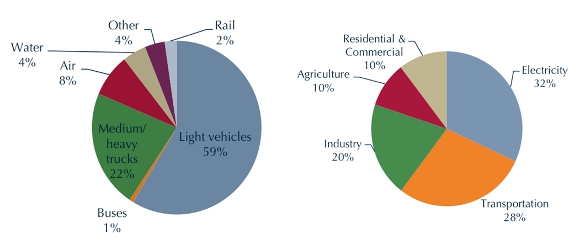The Obama administration’s focus on fuel economy standards is less effective at reducing greenhouse gas emissions compared to an oil tax.
 In recent years, part of the Obama administration strategy for reducing greenhouse gas emissions has been to increase fuel economy standards for new cars and light trucks. In new research Eric O’Rear examines the economic impacts of these new standards, compared with the introduction of an oil tax. He finds that stronger fuel economy regulations will not only burden the economy with the added costs of investment in more energy-efficient vehicles, but that they are also less economically efficient, and will result in smaller reductions in carbon emissions and net oil imports compared to an oil tax.
In recent years, part of the Obama administration strategy for reducing greenhouse gas emissions has been to increase fuel economy standards for new cars and light trucks. In new research Eric O’Rear examines the economic impacts of these new standards, compared with the introduction of an oil tax. He finds that stronger fuel economy regulations will not only burden the economy with the added costs of investment in more energy-efficient vehicles, but that they are also less economically efficient, and will result in smaller reductions in carbon emissions and net oil imports compared to an oil tax.Energy legislation in recent years has been developed for the main purposes of: lowering harmful, heat-trapping greenhouse gas (GHG) emissions; and helping the U.S. further develop its energy independency through continuous reductions in foreign oil demands, making the country less reliant on sometimes adversarial and unstable countries. A key sector targeted in legislation is transportation. – more specifically cars and light trucks – given that close to 70 percent of US petroleum use comes from the sector, and is the second-largest contributor to domestic GHG emissions behind the electric power sector (Figure 1).
Figure 1 – Energy Use and GHG emissions by transportation mode and sector, respectively
 |
| Source |
Read more on The London School of Economics and Political Science Blog page


No comments:
Post a Comment